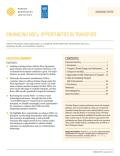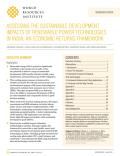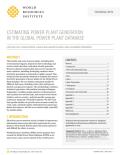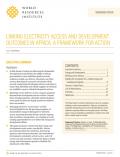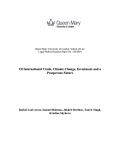
A transformative, integrated, and holistic approach to sustainability is necessary to reach a prosperous future for all. With growing inequality in the world, demographic change, and rapid technological development, and 40 percent of the world’s population with no access to digital technology, access to digital technology for all and ultimately having a prosperous future is a must. Doing so will give a voice to the voiceless. For that, governments, companies, and transnational institutions should invest as much as possible to make it happen and provide solutions that are rules-based, inclusive, innovative, disruptive, and simple. Access to energy, mitigating climate change, and benefiting from international trade and investment all can be achieved thanks to technological advancement. These global challenges are complex, interconnected, multidimensional, interdependent, and multi-causal.
